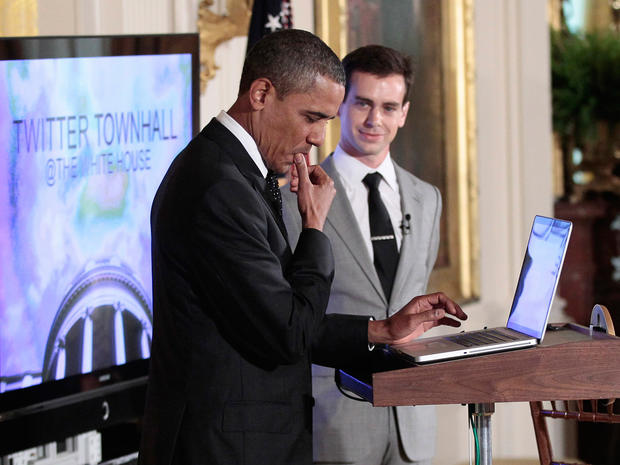Obama more active on social media, with less focus on jobs, report shows
(CBS News) A new study of the Obama and Romney campaigns' respective use of social media shows that President Obama's camp not only uses social media more, but targets specific constituencies more and engages with other users slightly more.
Over a two-week period in June, the Obama campaign posted nearly four times as much content on its website and social media sites than the Romney campaign, according to the Pew Research Center. The Obama campaign's digital content also saw a larger audience response, according to the study, with twice the number of "shares," online views and comments.
The study, which reviewed the campaigns' online content from June 4 to June 17 (and included additional website audits in June and July), also offered some insight on what the candidates want voters to hear about:
The Romney campaign was more than twice as likely to talk about Mr. Obama (accounting for one third of its content) than the president's campaign was to talk about Romney (14 percent of his content). Pew notes that this started to change in late July, when the Obama campaign revamped its website.
Additionally, while both campaigns communicated about the economy, the Romney campaign did more: Twenty-four percent of Romney's content was about the economy, compared with 19 percent from the Obama campaign. The Romney campaign was nearly twice as likely to talk about jobs while the Obama campaign divided its economic messaging between jobs and broader economic themes like investing in the middle class.
Over the past few election cycles, the use of social media across the globe has exploded, and campaigns have used it to varying degrees of success to engage with and mobilize voters. It's up for debate how much influence social media has. Some candidates with successful Internet campaigns, like Democrat Howard Dean and Republican Ron Paul, haven't seen their online popularity translate into popularity at the polls. Still, as Pew points out, "throughout modern campaign history successful candidates have tended to outpace their competitors in understanding changing communications."
While this year's election is widely viewed as primarily about the economy, the study found that the Obama campaign's messaging about other issues generated more of an audience response. Messages about the economy generated an average of 361 "shares" or "retweets" per post, while immigration generated four times that reaction. Messages about women's and veterans' issues generated more than three times the response. Romney's messages about issues like health care and veterans also generated more of a response than economic messages.
The Obama campaign, meanwhile, had more outreach to specific constituencies on its website. The site has messaging tailored to 18 different groups, including African-Americans, women, LGBT voters, Latinos, veterans/military families and young Americans. The Romney campaign began adding different community pages to its website this summer and had nine such groups by early August.
While social media obviously offers an opportunity for user engagement, neither campaign used online tools to interact directly with voters that much. Just 3 percent of the Obama campaign's Twitter messages, for instance, were "retweets" of citizen messages. The Romney campaign, meanwhile, had just one "retweet" in the period studied -- a "retweet" of a message from Mitt Romney's son Josh.

